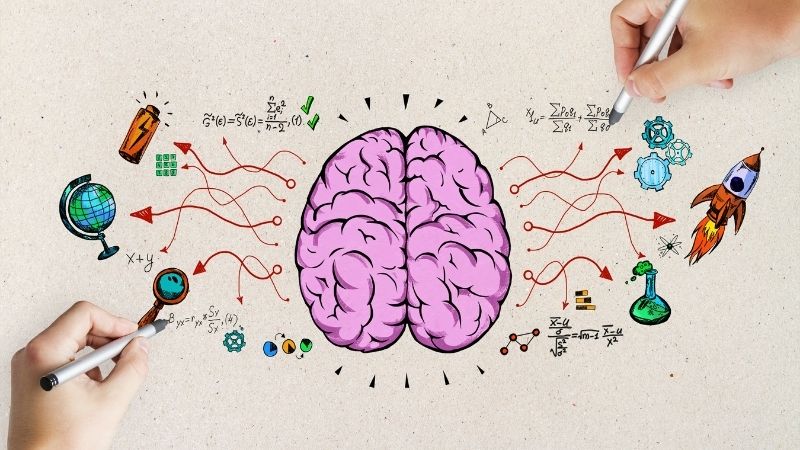
In the realm of high school education, extracurricular activities play a significant role in shaping students' overall development. Among these activities, high school sports hold a prominent position due to their potential impact on physical fitness, teamwork, leadership skills, academic success, discipline, time management, social interaction, emotional well-being, and resilience.
This article delves into the world of popular high school sports such as football, basketball, and track and field. By exploring their benefits and elucidating the role of interscholastic competitions in students' lives, we aim to provide an insightful perspective beyond the confines of the classroom setting.
Key Takeaways
- High school sports such as football, basketball, and track and field have numerous physical and mental benefits, including improved cardiovascular endurance, muscular strength, and flexibility, as well as reduced risk of chronic diseases.
- Interscholastic competitions in these sports play a crucial role in developing teamwork, leadership skills, sportsmanship, and effective communication among students.
- Anecdotal evidence suggests a positive impact on academic performance through high school sports, with coaches providing academic support and a need to understand the impact on college admissions.
- Participating in high school sports teaches important character traits such as discipline, time management, resilience, and promotes sportsmanship, fair play, and respect for opponents.
The Physical and Mental Benefits of High School Sports
High school sports have been shown to offer a range of physical and mental benefits for students.
Engaging in sports activities promotes physical fitness by improving cardiovascular endurance, muscular strength, and flexibility. Regular participation in high school sports helps students maintain a healthy weight, reduce the risk of chronic diseases such as obesity and diabetes, and enhance overall body coordination.
Moreover, engaging in sports can provide stress relief by offering an outlet for emotions and promoting psychological well-being. The physical activity involved in high school sports stimulates the release of endorphins, which are known as 'feel-good' hormones that can improve mood and reduce feelings of anxiety or depression.
Additionally, being part of a team fosters social connections and provides a sense of belongingness among students.
Overall, participating in high school sports not only contributes to physical fitness but also enhances mental well-being by promoting stress relief and cultivating social relationships.

Building Teamwork and Leadership Skills Through Interscholastic Competitions
Participating in interscholastic competitions fosters the development of teamwork and leadership skills among students. Through these competitions, students have the opportunity to engage in sportsmanship, communication skills, problem solving, and decision making abilities.
Teamwork is a crucial aspect of any sport, as it requires individuals to work together towards a common goal. This fosters collaboration and cooperation amongst team members.
Leadership skills are also honed during these competitions, as students learn how to guide and motivate their teammates towards success.
Moreover, participating in interscholastic competitions enhances sportsmanship by teaching students how to compete with grace and respect for their opponents.
These experiences provide a platform for students to develop effective communication skills both on and off the field.
Building upon these essential life skills acquired through high school sports prepares students for future academic success.
[Transition sentence: Moving forward, it is important to explore the role of high school sports in academic achievement.]

The Role of High School Sports in Academic Success
A comprehensive study is needed to examine the connection between involvement in high school sports and academic success. While there is anecdotal evidence suggesting that participation in sports can have a positive impact on students' academic performance, more research is required to establish a definitive link.
Additionally, exploring the role of coaches in providing academic support can provide valuable insights into how high school sports programs can contribute to students' overall educational experience.
Understanding the impact of high school sports on college admissions is also crucial in determining the value of athletic involvement in students' future prospects.
How High School Sports Foster Discipline and Time Management
This discussion will explore the ways in which high school sports can contribute to building character, balancing academics and athletics, and developing teamwork and leadership skills.
Through participation in sports, students have the opportunity to learn important values such as perseverance, resilience, and discipline.
In addition, they must learn how to manage their time effectively in order to excel both on the field and in the classroom.
Building Character Through Sports
Developing character traits such as discipline, teamwork, and resilience can be fostered through the engagement in high school sports. Participation in sports provides an opportunity for students to develop important life skills that go beyond the physical aspects of the game.

Some ways in which high school sports can help build character include:
Promoting sportsmanship and sports ethics: Through competition, athletes learn the importance of fair play, respect for opponents, and adherence to rules.
Building self-esteem through sports: Successes on the field or court can boost a student's confidence and sense of accomplishment.
Teaching resilience: Athletes face challenges, setbacks, and failures throughout their athletic journey. Overcoming these obstacles helps them develop perseverance and mental strength.
By engaging in high school sports, students have the chance to cultivate these character traits that are beneficial not only in athletics but also in other areas of their lives.
Transitioning into balancing academics and athletics allows individuals to thrive both inside and outside the classroom.
Balancing Academics and Athletics
Achieving a balance between academic responsibilities and participation in athletic activities can be a challenging endeavor for student-athletes. Managing stress is crucial for student-athletes to maintain good academic performance. The demands of training, competitions, and travel can create additional pressure on these individuals.

It is essential for student-athletes to develop effective time management techniques to ensure that their academic commitments are met while also dedicating sufficient time to their sport. Prioritizing tasks, creating schedules, and seeking support from teachers and coaches can help alleviate the stress associated with balancing academics and athletics.
Additionally, implementing strategies such as maintaining a healthy lifestyle, practicing mindfulness or meditation, and seeking social support can further aid in managing stress levels. By effectively managing stress, student-athletes can optimize their academic performance while pursuing their passion for sports.
Teamwork and Leadership Skills
Teamwork and leadership skills are essential for student-athletes to cultivate in order to excel both academically and athletically. Developing these skills through sports can have a profound impact on students' lives. Here are three key benefits of teamwork and leadership development in high school sports:
Improved communication: Participating in team sports allows student-athletes to enhance their communication skills. Effective communication is vital for successful collaboration with teammates, coaches, and officials during games or competitions.
Enhanced problem-solving abilities: Sports often present challenging situations that require quick thinking and problem-solving. Student-athletes learn how to make decisions under pressure, analyze different options, and find solutions collectively as a team.
Increased self-confidence: Being part of a team provides opportunities for student-athletes to take on leadership roles and develop their confidence. Leading by example, making decisions, and motivating others contribute to building self-assurance that extends beyond the realm of athletics.
Exploring the Social and Emotional Impact of High School Sports
This discussion examines the social and emotional impact of high school sports, focusing on three key points: mental health benefits, teamwork and camaraderie, and building resilience and confidence.

Research has shown that participating in high school sports can have positive effects on mental health by reducing symptoms of depression and anxiety.
Furthermore, being part of a team fosters a sense of belonging and promotes valuable social skills such as communication, cooperation, and empathy.
Additionally, engaging in competitive sports helps students develop resilience to setbacks and challenges, while also boosting their self-confidence through personal achievements and team success.
Mental Health Benefits
Participating in high school sports has been found to have positive effects on students' mental well-being. Some of the mental health benefits that students can experience through participation in high school sports include:
Improved self-esteem: Engaging in physical activities and achieving personal goals can boost students' confidence and sense of self-worth.
Reduced stress and anxiety: Physical exercise releases endorphins, which are known to reduce stress levels and alleviate symptoms of anxiety.
Enhanced mood and overall happiness: Regular physical activity is associated with the release of neurotransmitters like serotonin, dopamine, and norepinephrine, which contribute to improved mood.

By participating in high school sports, students have the opportunity to improve their mental well-being by boosting their self-esteem, reducing stress and anxiety, and enhancing their overall happiness.
These benefits lay a foundation for exploring the role of teamwork and camaraderie in high school sports.
Teamwork and Camaraderie
The cultivation of interpersonal skills and fostering a sense of camaraderie are important aspects of engagement in high school sports. Sportsmanship and peer support play vital roles in promoting teamwork and unity among athletes. High school sports provide an environment where students can learn the value of fair play, respect for opponents, and adherence to rules.
Through competition, athletes develop qualities such as discipline, perseverance, and resilience, which contribute to their personal growth both on and off the field. Moreover, participation in team sports allows students to build strong bonds with their peers, creating a supportive network that encourages collaboration and mutual success.
The shared experiences of triumphs and challenges foster a sense of belongingness within the team, contributing to overall well-being and social development. In this way, high school sports serve as platforms for developing essential life skills while promoting positive relationships among young individuals.
Building Resilience and Confidence
Building resilience and confidence in young individuals is a key aspect of engagement in high school sports. High school sports provide opportunities for developing perseverance and boosting self-esteem. Here are three ways in which high school sports can contribute to building resilience and confidence:
Overcoming challenges: Participating in high school sports exposes students to various challenges such as tough opponents, injuries, or setbacks during games. These experiences teach them to push through difficulties and develop a resilient mindset.

Skill improvement: High school sports require practice, dedication, and continuous improvement. As students work hard to enhance their skills, they gradually develop confidence in their abilities.
Teamwork and support: Being part of a team fosters a sense of belonging and support. Students rely on each other's strengths, learn from one another's mistakes, and celebrate successes together, which boosts their self-esteem.
By engaging in high school sports, young individuals can overcome challenges and build resilience while gaining the confidence necessary for personal growth.
Transitioning into the subsequent section about overcoming challenges and building resilience through high school sports...
Overcoming Challenges and Building Resilience Through High School Sports
To develop resilience, high school athletes can face and overcome various challenges through their participation in sports. Overcoming adversity is a fundamental aspect of personal growth, and sports provide an ideal platform for this process.
High school athletes often encounter physical, mental, and emotional obstacles that they must navigate in order to succeed. Through rigorous training and competition, athletes learn how to push through physical pain, handle pressure situations, and persevere despite setbacks. These experiences not only build resilience but also foster important life skills such as discipline, teamwork, and goal-setting.
Additionally, the support system within sports teams helps athletes develop strong interpersonal relationships and gain a sense of belonging. By overcoming challenges on the field or court, high school athletes are better equipped to face the adversities of life beyond their sporting careers.

Frequently Asked Questions
How Do High School Sports Impact College Admissions and Scholarship Opportunities?
The impact of high school sports on college admissions and scholarship opportunities can be significant. Participation in sports demonstrates qualities such as teamwork, leadership, and dedication, which are valued by colleges and scholarship committees.
What Are Some Lesser-Known High School Sports That Are Gaining Popularity?
Lesser-known high school sports that are gaining popularity include eSports and Ultimate Frisbee. These sports provide opportunities for students to engage in competitive activities that promote teamwork, physical fitness, and strategic thinking.
How Do High School Sports Programs Accommodate Students With Disabilities?
Inclusive practices in high school sports programs allow for the accommodation of students with disabilities. This may involve the use of adaptive equipment, such as wheelchairs or modified sporting equipment, to ensure equal participation and access to physical activities.
What Role Do Coaches Play in Shaping the Overall Experience of High School Sports?
Coaches play a significant role in shaping the overall experience of high school sports through their influence on team dynamics. They provide guidance, instruction, and motivation to athletes, contributing to their development both as individuals and as members of a team.
How Does Participation in High School Sports Affect Students' Long-Term Physical Health and Well-Being?
Participation in high school sports has been shown to have positive effects on students' long-term physical health and well-being. It promotes physical fitness benefits, such as improved cardiovascular health and increased muscular strength, as well as mental health benefits, including reduced stress and improved self-esteem.
 Careers in EducationElementary EducationHigh School EducationEducational TechnologyTeaching StrategiesSpecial EducationPrivacy PolicyTerms And Conditions
Careers in EducationElementary EducationHigh School EducationEducational TechnologyTeaching StrategiesSpecial EducationPrivacy PolicyTerms And Conditions
